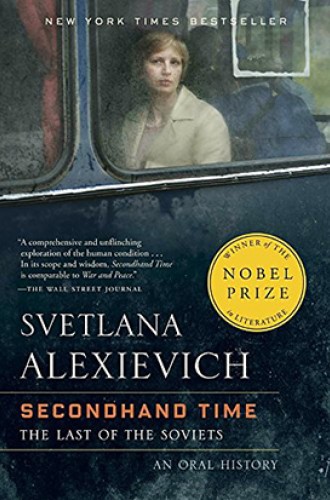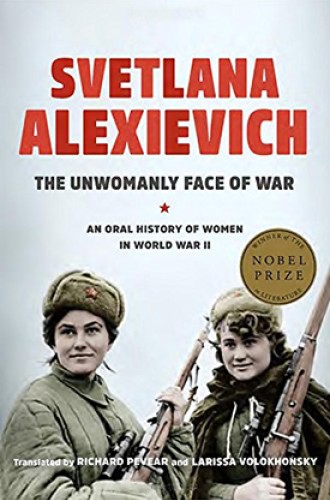Robbed of victory in Russia
Svetlana Alexievich tells the stories behind Russia's wartime psychology.
How to make sense of Russia’s strange, unsettled place in the world has become a critical question in the era of Vladimir Putin and Donald Trump. But if Svetlana Alexievich, born in Ukraine in 1948, had not won the 2015 Nobel Prize in Literature, the media might have overlooked her two magisterial oral histories of Russia—her expansive, epic examination of the Soviet Union and its dissolution in Secondhand Time, and the just-published English translation of her 1985 work The Unwomanly Face of War.
War frames both works, because war has defined Russia and its onetime satellites for at least a century. Beyond the surface of today there are unsettling truths, Alexievich argues. As she writes in the introduction to Secondhand Time, “today, people just want to live their lives, they don’t need some great Idea. This is entirely new for Russia; it’s unprecedented in Russian literature. At heart, we’re built for war. We were always either fighting or preparing to fight. We’ve never known anything else—hence our wartime psychology.”
Such psychology is mixed in with a wariness of the West that has always been characteristic of Russia. As one of Alexievich’s interviewees, an avowed “Soviet,” notes:







